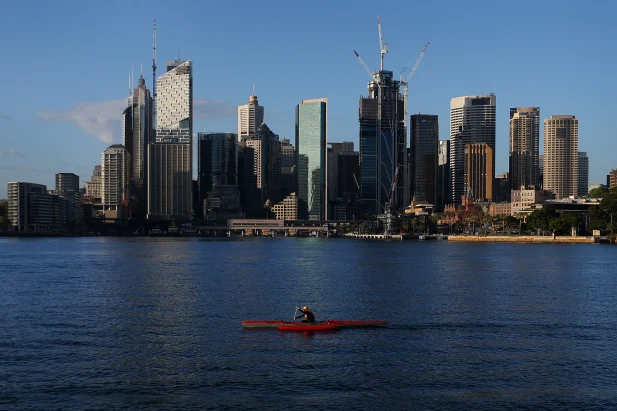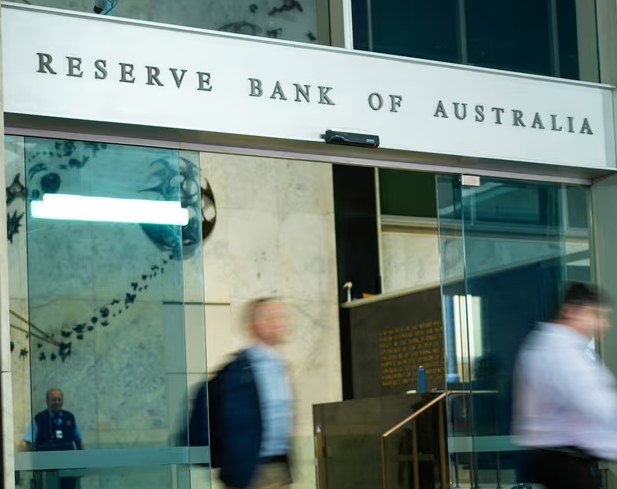The Australian sharemarket is poised to move within touching distance of its record high ahead of the release of local inflation data mid-week that will guide the Reserve Bank of Australia on whether it needs to raise interest rates again next month.
Futures indicate the S&P/ASX 200 will rise 0.5 per cent at the open on Monday after the benchmark index closed at a fresh nine-month high of 7452.2 points on Friday. It currently sits about 2.4 per cent off its record high after rallying 5.9 per cent this year.

The local market will take a strong lead from Wall Street where a rally in technology stocks fuelled a 2.7 per cent surge by the Nasdaq on Friday – its biggest one-day gain since November. The S&P 500 rose 1.9 per cent and the Dow Jones Industrial Average added 1 per cent.
Google parent Alphabet jumped 5.3 per cent after revealing a plan to cut 12,000 jobs and Netflix surged 8.5 per cent after reporting better than expected subscriber numbers.
Meanwhile, bitcoin topped $US23,000 over the weekend, reaching its highest level since August.
“I don’t think anyone predicted how strong the Australian sharemarket’s start to the year has been because everyone expected the pain from a global recession to start in the first half of this year,” said Jamie Hannah, deputy head of investments at VanEck.
“All the fundamental risks that drove the market’s weaker performance last year haven’t disappeared though, so there is certainly still a risk that this sharemarket rally is overdone.”
Traders will closely watch the release on Wednesday of Australian inflation data for the fourth quarter for clues on whether the RBA will deliver a ninth consecutive rate rise at its next policy meeting on February 7.

Markets are expecting that annual headline inflation accelerated to 7.5 per cent in the December quarter, from 7.3 per cent in the previous three months. The RBA forecast that inflation peaked at about 8 per cent in December.
Trimmed-mean inflation – the RBA’s preferred measure that excludes large price movements – is projected to be 6.4 per cent, up from 6.1 per cent in the September quarter.
“The fourth-quarter inflation data will be a critical input into the RBA board’s February deliberations,” said Felicity Emmett, senior economist at ANZ. “It would take a solid downside surprise in underlying measures of inflation for the [RBA] to consider a pause in hiking.”
Interbank futures imply about an 82 per cent probability that Australia’s central bank will lift interest rates next month, and an 18 per cent chance it will keep the cash rate on hold at 3.1 per cent.
Traders expect the cash rate will peak at around 3.54 per cent in September, down from 3.9 per cent last week ahead of weak jobs figures.
Potential pause
AMP’s chief economist, Shane Oliver, says the RBA has tightened enough to bring inflation back to target, and it should leave the cash rate on hold next month to avoid the risk of unnecessarily tipping the economy into recession.
“The monthly jobs and inflation data are consistent with the RBA pausing,” Dr Oliver said. “But the strength of retail sales as indicated by the ABS for November and from corporate reports suggests a still high risk of another 0.25 percentage point hike in February.”
New Zealand’s consumer price index for the December quarter will be released on Wednesday.
Westpac forecast that inflation rose by 1.1 per cent in the three months to December, causing the annual rate to slip to 6.9 per cent, from 7.2 per cent in the September quarter.
The bank predicted that inflation won’t be back within the Reserve Bank of New Zealand’s target band until mid-2023.
“That will keep the pressure on the RBNZ to continue hiking the cash rate for some time yet,” said Satish Ranchhod, senior economist at Westpac.
Earnings test
In the US, the December-quarter reporting season will begin to ramp up, with companies comprising more than half the S&P 500’s market value due to report results in the next fortnight.
This includes Microsoft, the second-largest US company by market value, reporting on Tuesday (US time), Tesla and IBM on Wednesday and Intel on Thursday. Apple, the largest US company, and Alphabet are scheduled to report in the following week.
Consensus expectations point to a 2.5 per cent decline in corporate earnings compared to a year ago.
Of the 11 per cent of S&P 500 companies to have reported so far, only 69 per cent have beaten expectations which is well below the norm of 76 per cent, according to AMP.



